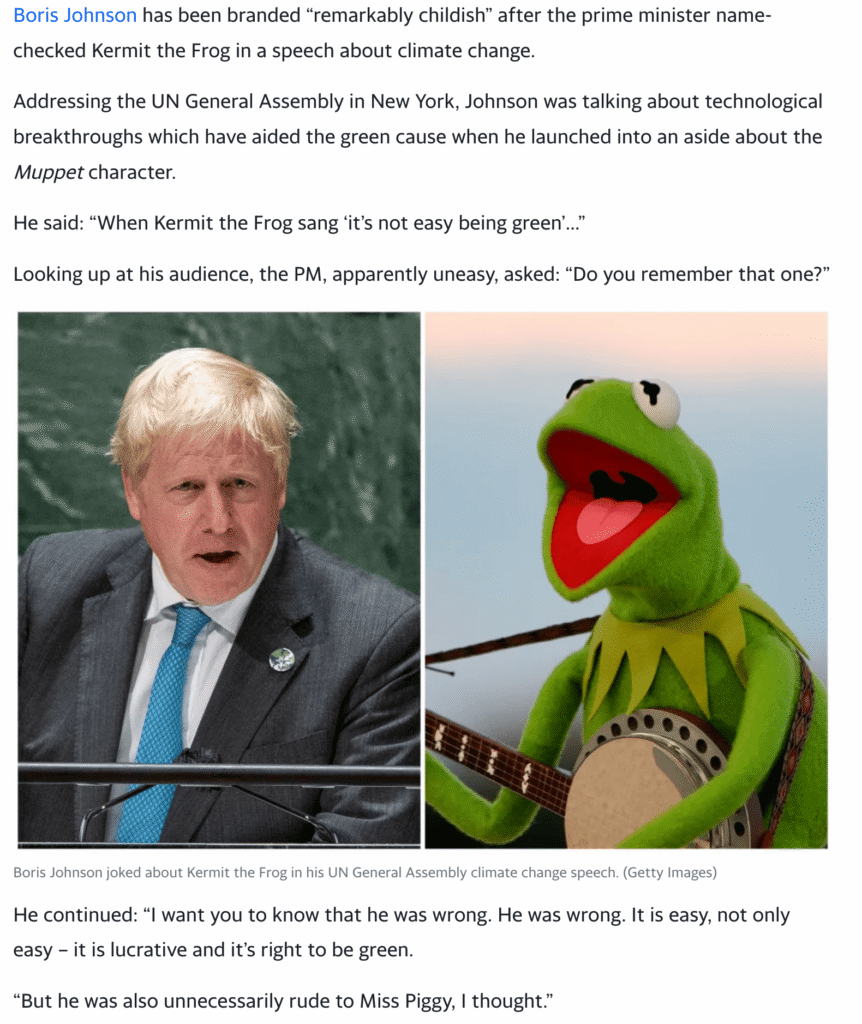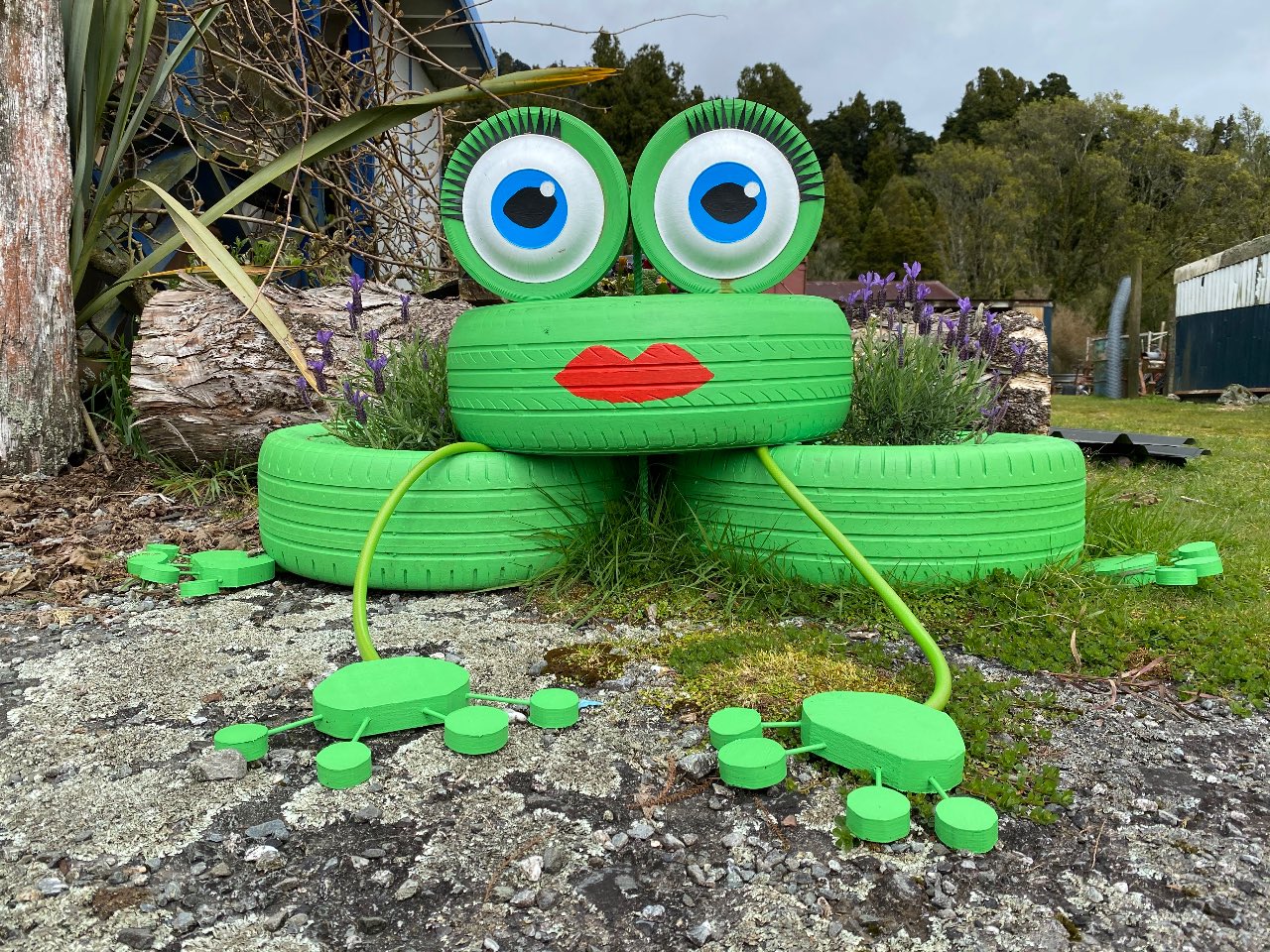Recent and ongoing flooding in the North Island is horrific. How quickly we have gone from climate change being a questionable matter, to climate change being front and centre of what’s happening (although National MP Maureen Pugh still thinks climate change might remain questionable). Toby Morris, of the Siouxsie and Toby team who created some great graphics during the COVID pandemic, provided a cartoon – ‘Climate Change Reality Check‘ – in the Spinoff this week. Toby does some great work, but I take exception to his use of the tired and incorrect metaphor of a frog in boiling water.
The way the story is told, is that a frog placed in a saucepan of water that is gradually heated will not jump out of the pot because it will not sense the gradual change in temperature. This story is used frequently to illustrate the tendency of human beings to ignore gradual change, until the situation is catastrophic. However, the problem I have is that this story isn’t correct. Frogs are not that stupid. Humans are, but frogs are not. Frogs, when placed in gradually heating water, will sense the temperature is becoming uncomfortable and do their darndest to jump out of the pan.
This story has been around for quite a while. According to Wikipedia it was used in the:
- 1960s to warn those who were sympathetic towards the Soviet Union during the Cold War;
- 1980s to warn about the impending collapse of civilisation anticipated by survivalists;
- 1990s about inaction in response to climate change and staying in abusive relationships;
- and in general to warn about slow erosion of civil liberties.
Al Gore used the boiling frog story in a New York Times op-ed and the 2006 movie An Inconvenient Truth, to describe ignorance about global warming. In his movie the frog is rescued before it is harmed. How nice. Presumably the crew didn’t let the frog jump out of the pan or it would have saved itself, rather than needing human intervention.
Why do I care whether people use a story that is incorrect? A story they know is incorrect? When I have challenged friends on the use of this story, they don’t see my problem. “It’s a great metaphor that everyone understands,” they say. “What’s your problem?”
So I ask, “Why are people bothered that Maureen Pugh isn’t convinced that humans are causing climate change?” She believes a story that doesn’t appear to be true. So it’s OK to believe some untrue stories but not others? We can incorrectly believe in frogs getting boiled, but we must get our climate change stories straight? People are bothered by Maureen Pugh’s story because they think she is wrong (and yes, it is an important story to get right). But that’s not really the crux, is it? Whether people think Maureen Pugh is wrong. People are wrong all the time! The question to me is, did Maureen Pugh know her story was untrue, but tell it anyway? Or did she say what she believes? She backtracked so rapidly that either she didn’t believe her original statement, or she didn’t believe her retraction!
People believe all sorts of weird and different things. We aren’t all going to agree. However, what we need is people to tell stories they think are true because, if they are telling stories they think are false, what are we supposed to make of their statements? Life rapidly becomes very confusing! What I suggest in regard to the frog story is that, once we know a story is incorrect, we should stop providing the story as if it is truth.
Of course, ‘truth’ is a shifting matter. While religion might like to posit that there is absolute truth, as a scientist I consider we are always on a path to better understanding, in which there will be no end point. As a scientist, I think it is crucial that we document our progress along that path, which requires us to identify which stories we have discovered to no longer be true, and stop telling them in a way that leads other people to believe in them. That a story is a handy apologue (I just learned this word – a brief story with exaggerated details meant to convey a moral), is not a good reason to use it in a way that leads others to believe in its truth, when we know it is not true. At one point (not so long ago), I believed in the frog story. Now I know it is incorrect. As a consequence, I never refer to the frog story without saying it is incorrect.
What I would like, is not for people to abandon the boiled frog story, but to tell the story and explain how they now know better. To tell the story and say, this is what we think people are like; we’ve learned frogs appear to be smarter than humans. Tell the story and say, can humans get with the planet and figure out how to be as smart as frogs? Time to give frogs their due, I say.

Discover more from Jane Shearer
Subscribe to get the latest posts sent to your email.




